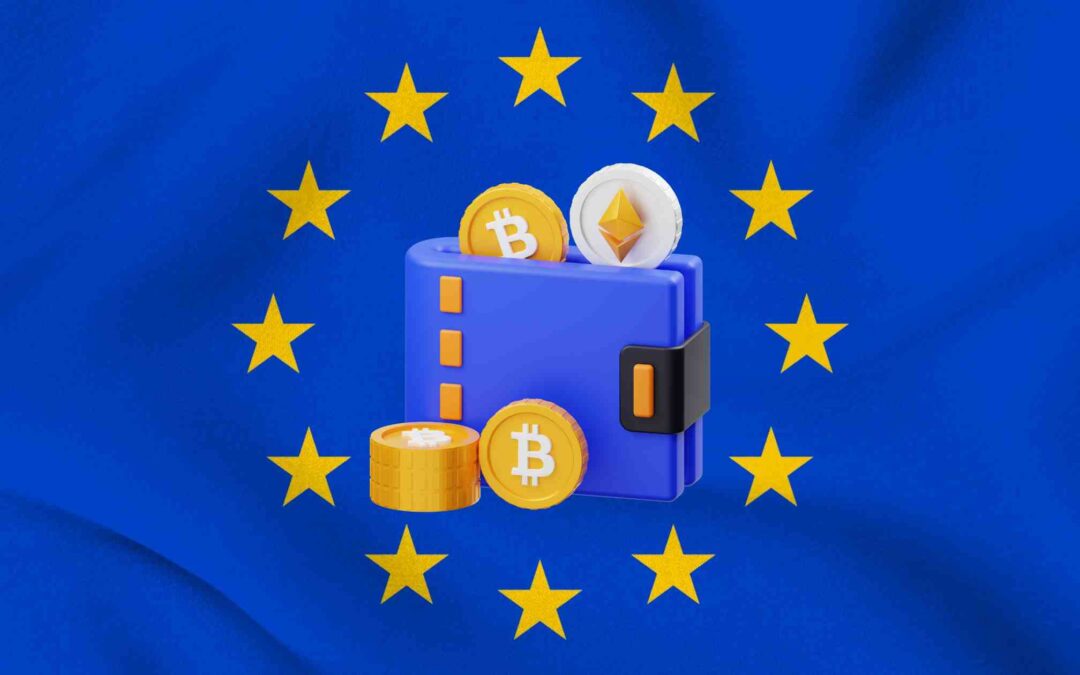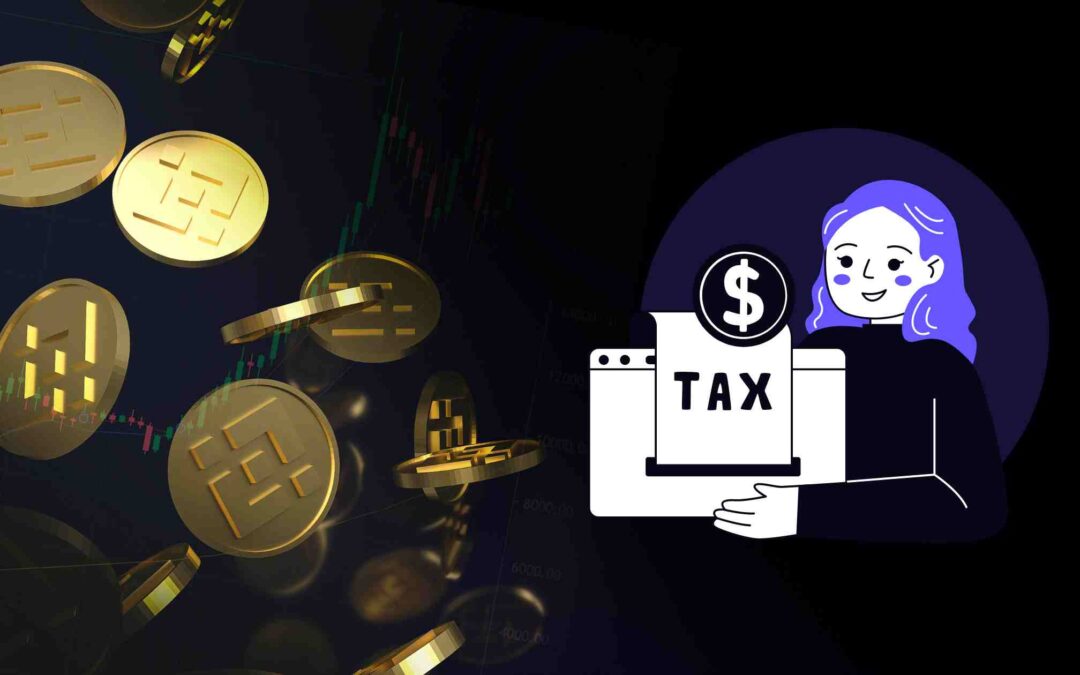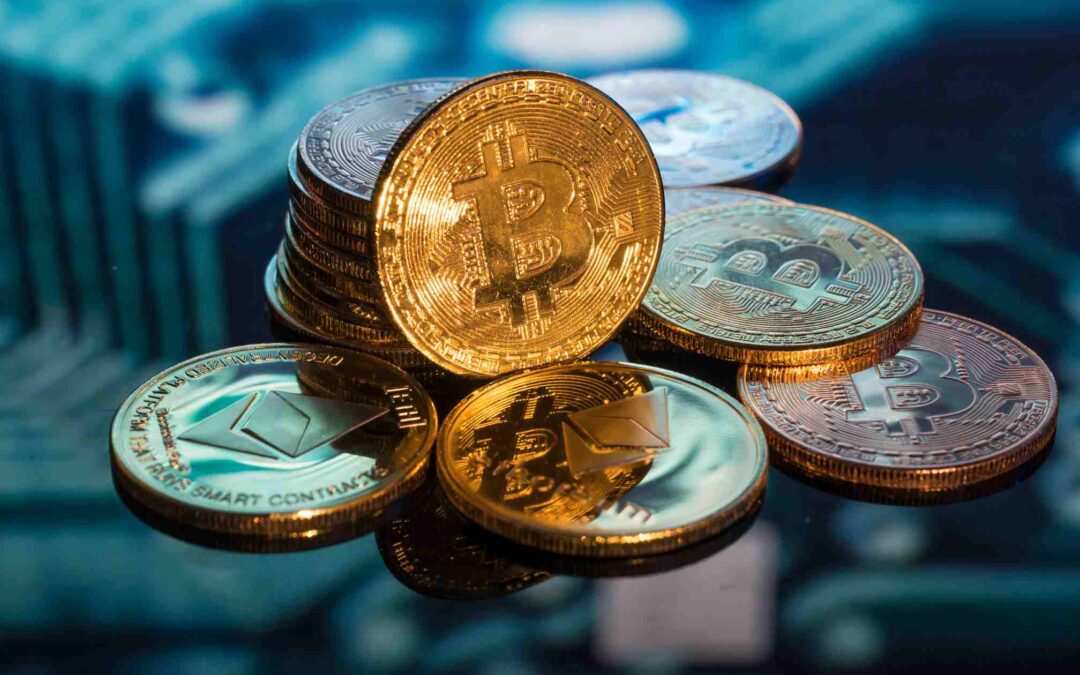
by Iulia Vasile | Apr 22, 2023 | News
The 2020-created regulatory package now awaits the European Council’s approval before being enforced. Following two previous postponements, the European Parliament has held the final vote on the Markets in Crypto-Assets Act (MiCA).
The legislation, initially proposed in 2020, must be approved by the European Council before taking effect.
The vote took place on April 20. Stefan Verger, the European Parliament member and crypto advocate, said this to be a milestone for the crypto industry.
What’s the point of the Markets in Crypto-Assets Act (MiCA)?
MiCA aims to establish standardized regulations and harmonized rules for crypto assets across the European Union (EU), providing legal certainty for the crypto industry and investors.
The regulation will set guidelines for the operations, structure, and governance of digital asset token issuers and impose rules on transparency and disclosure requirements for crypto issuance and trading.
MiCA’s specific provisions regarding stablecoins will be enforced in July 2024, while other provisions, including those for crypto asset service providers, will come into effect in January 2025.
The regulation has been met with cautious optimism. However, the regulations mentioned in the 400-page document have also presented concerns by specialists.
For instance, the current draft, which was submitted to vote, does not mention decentralised finance (DeFi), address the growing crypto lending and staking sector, or establish rules for nonfungible tokens.
The industry speaks strongly for the need for cooperation between governments, regulators, and industry stakeholders. This was one of the topics at Paris Blockchain Week 2023.
While the future is uncertain, EU officials say that MiCA should help mitigate the negative impacts of incidents such as FTX’s insolvency in the future.
Limitation of MiCA
MiCA will become the first comprehensive pan-European crypto framework, set to take effect in 2024. During the latter half of last year, when most of the MiCA text had been drafted, the industry experienced several shocks, creating new challenges for regulators.
However, given the rapid expansion and dynamic nature of the crypto industry, there will always be new issues that will need to be addressed.
This raises the question of whether MiCA, given its current imperfections, can be considered a truly “comprehensive framework” a year from now.
More importantly, will it be an effective set of rules to prevent future failures similar to those involving TerraUSD or FTX?
EU DeFi regulations need to improve
A significant oversight in the MiCA is its treatment of decentralised finance (DeFi). The current draft largely omits any mention of this more recent organisational and technological development in the crypto space, which could pose a problem when MiCA is implemented.
If and when more users turn to DeFi, after the countless failures of the centralized platforms, customers will need regulations to receive protection. And there’s also the money laundering issue. However, given the decentralisation of DeFi, regulating this branch is a huge hurdle for authorities. Customers are still new to the crypto market, and many take their first contact using centralised exchanges.
But the absence of a specific section devoted to DeFi does not imply it is impossible to regulate. DeFi is essentially a collection of derivatives, bonds, loans, and equity financing presented as something new and innovative. In this sense, industry thought leaders believe that the yield-bearing, lending, and borrowing of collateralised crypto products are areas of interest for investment and commercial banks and should be regulated similarly. In this context, the suitability requirements outlined in MiCA could be helpful. For example, DeFi projects might be classified as providing crypto asset services in MiCA’s terminology.
Lending and staking
DeFi might be the most prominent, but it is not the only shortcoming of the forthcoming MiCA. The EU framework also neglects to address the burgeoning sectors of crypto lending and staking.
Considering recent failures involving lending giants like Celsius and the increasing attention of American regulators to staking operations, EU lawmakers will need to develop appropriate regulations as well.
The market collapse last year was driven by poor practices in this space, such as weak or non-existent risk management and reliance on worthless collateral.
On the other side of the financial system are banks. Legacy commercial or investment banks and even “traditional” fintech companies face more stringent regulations. Some believe the EU should provide a standard that should apply to all these services and products, which includes both investment banks and crypto platforms offering lending and staking services.
Non-fungible tokens (NFTs) are another area to monitor. In August 2022, European Commission Adviser Peter Kerstens revealed that despite the lack of a specific definition in MiCA, NFTs would be regulated like cryptocurrencies in general. In practice, this could imply that NFT issuers would be considered crypto asset service providers and required to submit regular reports of their activities to the European Securities and Markets Authority through their local governments.
Is the EU’s regulation (MiCA) a good thing?
While MiCa still has some unresolved issues, the industry is moving forward and helping legitimise the market.
However, it’s necessary that European lawmakers keep pace with regulatory updates. There’s a need for a more robust approach to some of the technical standards and guidelines currently being developed as part of the MiCA regime. The process of developing and putting these regulations in place is also slow in the EU.
On the other hand, the EU has legislation for the crypto industry, whereas other economic powers do not.

by Iulia Vasile | Feb 6, 2023 | News
Binance, the cryptocurrency exchange, has introduced Binance Tax, a tax reporting tool, in preparation for the tax season.
Binance Tax is a tool that helps users access information on their crypto activity to comply with local regulations. It allows users to download a tax summary report that includes details of their gains and losses throughout the year, including spot trades, crypto donations, and fork rewards.
Currently, the Binance Tax tool is only available for Binance platforms, but the company intends to integrate with other platforms in the future.
Taxes in crypto
The launch of Binance Tax follows recent global regulatory crackdowns on the crypto industry, with regulators focusing on investor protection and compliance with local standards. Currently, only Binance users located in Canada and France have access to Binance Tax. Binance mentioned that are actively working to expand support to additional regions and include support for more networks and wallets beyond Binance.
In the US, the Securities and Exchange Commission has called for firms to disclose their exposure to crypto risks. It has reintroduced a bill to allow companies to apply for compliance agreements with federal agencies.
This move by Binance aims to ensure its users are prepared for the upcoming tax season and stay on top of their tax obligations.
One month prior to the launch of Binance Tax, the exchange joined an association to improve compliance with global sanctions.
In the past year, regulatory agencies worldwide have increased their control over the crypto industry, particularly after the FTX crisis. For instance, the Securities and Exchange Commission in Thailand plans to implement stricter rules for the crypto industry with a focus on protecting investors.
Regulators in South Korea, the Netherlands, and the US have been investigating exchanges for non-compliance issues, with some exchanges, such as Kraken, being forced to settle with the US Treasury’s Office of Foreign Assets Control.
In December 2022, the US SEC asked companies to reveal any exposure to crypto bankruptcies and risks. Additionally, a bill was reintroduced by a House committee chair to allow companies to apply for compliance agreements with federal agencies for crypto innovation.
What happened to the crypto regulatory landscape in 2022?
Regulations in the crypto world were once seen as an obstacle to adoption, but they are now seen as a means to gain global mainstream acceptance. In 2022, crypto businesses saw broader acceptance from regulators worldwide, with many being granted operational licenses and access to new markets. However, the collapse of crypto firms like Terraform Labs, FTX, and Celsius had a negative impact on the industry’s reputation with regulators and investors.
North America
In North America, the US became the leader in crypto disruption after China’s ban on crypto mining and trading in 2021. The US is home to the largest crypto ATM network and is the highest contributor to the Bitcoin hash rate. NFTs received significant attention in US politics, with the FEC permitting their use for political campaign fundraising.
Canada banned crypto leverage and margin trading after the FTX collapse, and the US introduced the Crypto-Asset Environmental Transparency Act to report on the energy use and environmental impact of crypto miners.
South America
El Salvador remains the biggest contributor to mainstreaming Bitcoin, with President Nayib Bukele announcing a new BTC investment strategy. Brazil also saw pro-crypto regulation, with a bill signed into law legalizing the use of crypto as a payment method and a Payment Institution License issued to Crypto.com.
Asia
Asia saw numerous regulators soften their anti-crypto stance and allow crypto businesses to operate. China loosened its crypto ban, and the Shanghai High People’s Court recognized Bitcoin as property with the right to compensation in a loan case. India imposed two new crypto tax policies, but during its G20 presidency, it plans to develop standard operating procedures for cryptocurrencies.
Pakistan’s central bank signed new laws to launch a central bank digital currency. South Korea spent much of 2022 tracking down those responsible for investor losses from Terraform Labs, but also saw a reduction in hacking activities after implementing Know Your Customer (KYC) requirements.
Europe
The European Union‘s Committee of Permanent Representatives has approved a framework for regulating cryptocurrencies, known as the Markets in Crypto-Assets framework, to ensure consistent regulation among EU member states. The International Monetary Fund, a UN financial agency, has called for greater regulation of African crypto markets. Meanwhile, the Central African Republic has reportedly passed a bill to legalize the use of cryptocurrencies in finance.
In the United Kingdom, the government is seeking to tighten regulation of the crypto industry. In response to the FTX collapse, the country’s HM Treasury has issued guidelines for the Financial Conduct Authority to monitor crypto companies and their advertising. This has further influenced an upcoming 2023 legislation to restrict foreign crypto services from operating in the UK.
Africa
In South Africa, the Financial Sector Conduct Authority has updated its 2002 Financial Advisory and Financial Intermediary Services Act to declare crypto as a financial product subject to financial services laws. Nigeria has banned ATM cash withdrawals of over $225 (100,000 nairas) per week to promote the use of its CBDC, the eNaira. African crypto exchange Yellow Card has received regulatory approval to expand its services across Africa.
The Dubai Virtual Assets Regulatory Authority issued operational approvals to crypto businesses in 2022, but had to revoke the Minimum Viable Product license from FTX MENA.
Australia has become the fourth largest crypto ATM hub, overtaking El Salvador, following the US, Canada, and Spain. Australian financial regulators continue their efforts from 2022 to create a regulatory framework for stablecoins.

by Iulia Vasile | Jan 29, 2023 | News
The crypto tracking system will keep a record of transaction history, gather information on transactions, and verify the origin of funds both before and after transfers.
The South Korean Ministry of Justice plans to launch a “Virtual Currency Tracking System” to combat money laundering and recover funds tied to criminal activities. This system will monitor transaction history, gather transaction information, and check the origin of funds before and after the remittance.
Regulators in South Korea are also cracking down on the broader crypto industry, recently investigating exchanges for native token listings and excluding global crypto exchanges from plans for third-party digital exchanges in the city of Busan.
The tracking system will be rolled out in H1 2023, and the ministry intends to develop its own tracking and analysis system later in the year. The aim is to improve the forensic infrastructure and conform to international standards in the fight against crime. The South Korean police have previously partnered with five local crypto exchanges to support criminal probes and foster a secure trading environment for crypto investors.
According to the press statement, the system is set to improve the forensic infrastructure and to come into aid in building a criminal justice system at international standards. All of this is needed to combat the level of sophistication that digital crime has reached over recent years, especially in regard to cryptocurrencies.
Police in South Korea has already established an agreement with local crypto exchanges that fight against digital crime and try to create a secure trading environment for crypto investors.
South Korea is harsh on crypto exchanges
The South Korean Supreme Court declared that Bithumb, a crypto exchange, must compensate investors for a 1.5-hour service disruption that happened on Nov. 12, 2017. The final ruling mandates that damages from $6 to $6,400 be paid to 132 affected investors. The total damages to be paid by the exchange rise up to $202,400 (251.4 million won).
The court stated that the operator, not the users who pay commissions, should bear the responsibility and cost of technical failures.
Bithumb is South Korea’s largest exchange and was temporarily impacted by a sudden doubling of average order volume. The exchange is facing ongoing investigations, including a special tax probe and a fraud case against a former chair.
South Korean government reacts to the Terra collapse
South Korean authorities are still investigating and confiscating assets related to the Terra ecosystem over six months after its collapse. In November, 140 billion won ($108 million) was seized from Terra co-founder Shin Hyun-Seong, and now, the Seoul Southern District Court has ordered to freeze of 120 billion won ($92 million) in assets of former and current CEOs of Terraform Labs’ affiliate Kernel Labs. The news was reported on Dec. 20 by The Korea Economic Daily.
Kernel Labs is a blockchain consultancy founded in 2018, specializing in decentralized apps and blockchain payments. It has close ties to Terraform Labs, with its CEO previously serving as VP of Engineering there and some employees having worked at Terraform’s South Korean office. The Seoul Southern District Court has seized 120 billion won ($92 million) in assets from Kernel Labs’ former and current CEOs as part of its ongoing investigation into the collapse of the Terra ecosystem. The court also accepted the prosecution’s request to confiscate assets from 7 individuals involved in profiting from the sale of pre-issued Terra tokens.
The CEO of Kernel Labs, Kim Hyun-Joong, is among those targeted in the Terra case, with prosecutors alleging he made illegal gains of at least $61 million. Another executive of Kernel Labs, a former CEO, is believed to have received $31 million in illegal proceeds. Kim reportedly made several real estate purchases in South Korea in 2021, including a $27 million building in the upscale neighborhood of Gangnam-gu and a $7 million apartment in Seongdong-gu.
The Terra case continues as global authorities search for Terraform Labs’ CEO, Do Kwon, who is believed to have fled to Serbia after leaving Singapore.
The Terra collapse has been one of the biggest impactful events in the crypto market in 2022. Its algorithmic stablecoin, TerraUSD Classic (USTC), was once among the top 10 cryptocurrencies but lost its dollar peg in May. This led to a chain reaction in crypto markets, resulting in major liquidations and instability, hitting hard the crypto lending sector.

by Iulia Vasile | Jan 18, 2023 | News
After the 2022 crypto collapses, the Thai securities regulator now requires crypto custodians and exchanges to have a contingency plan. The DeFi sector is increasing its TVL, and this expansion needs to assure clients of the safety of their funds.
New rules are being introduced by the Securities and Exchange Commission of Thailand to protect crypto investors.
As of January 17, 2023, the Thai SEC published regulations requiring virtual asset service providers to create a digital wallet management platform to ensure efficient custody of digital assets. These new rules are directed at crypto custodians, or virtual assets service providers (VASPs), that offer crypto storage services.
Three major requirements are included in the regulations, including creating policies and guidelines to oversee the risk management of private keys and digital wallets. VASPs must communicate with regulators about such policies and provide action plans to ensure compliance.
The Thai SEC also requested that crypto custodians create policies and procedures to manage digital wallets and keys. The SEC will require crypto custodians to create a contingency plan for any unforeseen events that could affect the wallet management system.
The SEC added that this included testing and drafting action procedures, assigning responsible persons, and reporting on the event.
Suppose an event affects the security of digital assets in custody. In that case, an system security audit and a digital forensic investigation must be conducted to assess the potential impact on client assets.
According to the announcement, the regulations regarding crypto custodians will take effect on January 16, 2023. These custodians must comply with all requirements within six months of that date.
The recent crypto regulations by Thailand’s SEC align with the authority’s efforts to implement stricter regulations. This comes in the wake of industry incidents such as the collapse of FTX. In early January, the authority reportedly began a new investigation against a local crypto exchange. Zipmex was accused of providing digital asset fund management services without proper authorization.
Such policies are important since more money is poured into crypto. Experts are calling this amount the Total Value Locked (TVL).
What is the Total Value Locked (TVL)?
Financial market experts have begun to accept the new type of investment that decentralized finance (DeFi) and have explored ways to measure its performance.
Since the rise of decentralized finance (DeFi) in 2020, financial experts have been exploring new ways to evaluate its performance. In addition to market capitalization, trading volume, and total and circulating supply, total value locked (TVL) is a popular crypto indicator. DeFi investors use it for assessing the overall value of assets, usually in USD. This estimate may be used across all DeFi protocols or in a single DeFi project.
For example, TVL in staking is particularly useful for investors looking to support the DeFi platforms with the highest rewards. It is the total value locked in the DeFi staking protocols and represents the amount of assets deposited by liquidity providers. In 2022, TVL reached nearly $2 billion globally, growing from $400 million in the previous two years. Having this sum of money in a vastly unregulated industry is becoming a risk.
TVL has become a crucial metric for investors looking to assess if the entire ecosystem or a single protocol is healthy and worth investing in.
The value of TVL value is affected by many other factors than withdrawals, deposits, and the actual amount that a protocol holds. The TVL changes with the value of either the native token or fiat currency. Some protocols may deposit funds in native tokens, so their TVL can vary with their value. The protocol’s TVL will also increase in value if a token is acquired.
Most DeFi apps are not regulated
The growth of DeFi has been substantial in 2021. But it still remains relatively small compared to the overall crypto-asset market capitalization. The TVL of the DeFi sector rose from around 18 billion EUR in January 2021 to over 240 billion EUR by the end of December 2021.
Currently, many DeFi platforms provide financial services in a non-compliant manner, exposing participants and the market to significant risks. Despite their complexity, many DeFi applications, when broken down, could represent regulated activities. These may follow the comprehensive frameworks already in place to preserve financial stability, protect financial consumers, promote investor protection and market integrity, and mitigate illicit finance risks. Non-compliance of DeFi systems with existing frameworks gives rise to pronounced risks for participants and the market.
However, compared to the size of the entire crypto-asset market, DeFi is still considered a niche segment. After the collapse of the stablecoin TerraUSD in early May 2022, TVL in DeFi dropped by almost 40% (approx €80 billion). Credit and staking protocols have experienced the biggest declines. Similarly, the value of many DeFi tokens decreased, particularly the DeFi token Luna which is directly linked to TerraUSD.
Some DeFi applications or activities are currently falling outside of the regulated space. This happens in some jurisdictions, and they raise risks that are left unaddressed by the existing rules.
Some of the characteristics of DeFi may be incompatible with existing regulatory frameworks. But these particularly given that the current framework is designed for a system that has financial intermediaries at its core. For example, frameworks are in place for the registration, licensing, and supervision of intermediaries involved in issuance, brokerage/trading, custody, and lending activities.
But the existence of intermediaries is contrary to the very essence of decentralized finance. And it is often difficult to even identify parties involved that can be assessed or regulated. Enforcement of existing regulations is also difficult to apply, given the absence of a responsible entity. As such, it may also be the case that current regulatory frameworks may not be suitable for regulating decentralized networks in certain jurisdictions.

by Iulia Vasile | Dec 8, 2022 | News
In Hong Kong, virtual asset service providers will have a new licensing system, which will require them to adhere to strict anti-money laundering (AML) guidelines.
Hong Kong’s legislative body has approved a new amendment to the anti-money laundering and terrorist financing system. The legislation now includes virtual asset service providers.
On June 1, 2023, this new legislation will go into effect, and it will establish a licensing system for virtual asset service providers. Crypto exchange service providers will be subject to the same legislation that currently applies to traditional financial institutions.
Virtual exchanges that want to open a Hong Kong business must follow strict AML(Anti-Money Laundering) guidelines and comply with investor protection laws before being granted a license to operate. Hong Kong, unlike other regulators around the globe, has used the FTX crash to reduce regulatory risks associated with centralized exchanges.
Regulators around the globe have been criticized for failing to protect retail investors after the FTX crypto exchange collapse. A growing demand has emerged to bring crypto exchanges under the law and to require strict AML and investor protection.
Hong Kong Monetary Authority to impose regulations
Hong Kong has actively worked toward the establishment of a well-thought regulatory framework for its nascent cryptocurrency market. The Hong Kong government published a policy in October entitled “Policy Declaration on the Development of Virtual Assets.” It included a regulatory framework as well as risk-based regulatory guidance. To evaluate and improve the technology underlying virtual assets, the government suggested several pilot projects.
Investors may also benefit from some protection regulations. This nation has become the leader in the urgent issue of investor protection because of the recent legislation amendment.
At a recent conference, Eddie Yue, chief executive of the Hong Kong Monetary Authority, suggested that there might soon be investor protection regulations in the country.
Banks are discussing the future of FinTech
Central bank governors from all over the world have attended a conference in Thailand to discuss the role and future of central banks in the face of evolving financial technology. The conference was hosted by both the Bank of Thailand and the Bank for International Settlements.
Panel discussion on digitalized monetary systems featured Eddie Yue (chief executive of Hong Kong Monetary Authority), Changyong Rhee (governor of the Bank of Korea), Adrian Orr (governor of the Reserve Bank of New Zealand), Cecilia Skingsley (Bank for International Settlements) discussing the rise of digital assets, central banks digital currencies, and the potential risks associated with this new technology.
The chief of the Hong Kong Monetary Authority discussed the benefits and innovations of blockchain technology, as well as its potential impact on central banks. Yue stated that stablecoins and CBDCs would offer more efficient and economical ways to transact in the long term. He noted, however, that any new technology comes with certain risks. These risks could be operational.
Yue pointed out that blockchain is decentralized by its very nature. It is, therefore, much more difficult to mitigate on-chain risk. Regulators should therefore focus on activities off-chain. He explained:
“We can start with regulating off-chain activities like regulating virtual asset exchanges. Hong Kong will soon introduce not just AML (anti-money laundering) aspect but also investor protection.”
This was before the Hong Kong government issued the regulations for crypto exchanges, which align with the international consensus on regulating stablecoins.
Changyong Rhee (the Bank of Korea governor) was less optimistic about blockchain technology’s future, particularly in the monetary sector, in light of recent crypto contagions. He stated that he wasn’t sure if “we are actually seeing the benefits of this technological advancement recently.”
“I was more positive before, but after seeing the Luna, Terra, and now the FTX issues. I don’t know [if] we will see the real benefit of this new technology, at least for monetary policy,” said Rhee.

by Iulia Vasile | Nov 25, 2022 | News
Belgia’s financial regulator has confirmed that Bitcoin, Ether, and other cryptocurrencies issued only by computer code are not securities.
However, this contradicts the views of Gary Gensler, Chairman of the U.S. Securities Exchange Commission, who has a different set of conditions to determine which crypto assets can be deemed a security.
Belgium releases a report about the classification of crypto
This explanation was provided by Belgium’s Financial Services and Markets Authority (FSMA) in a report released on November 22, 2022. This clarification was necessary due to the increased demand for information about how Belgium’s financial laws and regulations related to digital assets.
Although not legally binding according to Belgian or European Union law, the FSMA stated that cryptocurrencies would be classified as security if issued by an individual or organization:
The report states as follows:
“If there is no issuer, as in cases where instruments are created by a computer code and this is not done in execution of an agreement between issuer and investor (for example, Bitcoin or Ether), then in principle the Prospectus Regulation, the Prospectus Law and the MiFID rules of conduct do not apply.”
Belgian regulators noted that cryptocurrencies, even if they aren’t classified as securities, may still be subjected to other regulations if used by a company as a medium for exchange.
“Nevertheless, if the instruments have a payment or exchange function, other regulations may apply to the instruments or the persons who provide certain services relating to those instruments.”
Belgians regulators classify all digital coins, not just blockchain-based crypto
FSMA noted that the stepwise plan was neutral to technology, suggesting that it doesn’t matter whether digital assets are created and facilitated through a blockchain or other traditional methods.
In July 2022, the FSMA drafted the first report. This was to answer frequently asked questions from Belgian-based offerers and issuers of digital assets.
FSMA stated that the stepwise approach would be used as a guideline for the European Parliament’s Markets in Crypto Assets Regulations (MiCA), which will take effect at the beginning of 2024.
The clear guidelines of Belgium are contrary to the U.S. Securities Exchange Commission’s (SEC) “regulation by enforcement” approach. This is currently competing for control over digital asset regulations together with the U.S. Commodity Futures Trading Commission.
Gary Gensler, the chairman of SEC, has always considered BTC a commodity. However, he recently suggested that post-Merge Ether or other staked coins may be considered a security under the Howey test.
Belgium isn’t a big adopter of digital assets yet. A recent study by blockchain data platform Chainalysis ranked Belgium 94th on its Global Crypto Adoption Index.
But Bitcoin seems to have a lot of public support in Belgium.
A Belgian politician received his salary in crypto
Christophe De Beukelaer was the first European politician to convert his salary to Bitcoin. He started doing this at the beginning of 2022. He hopes to increase awareness about Bitcoin, and other alternative monetary models, to encourage financial literacy and get people talking.
De Beukelaer was first introduced to Bitcoin and blockchain in 2017. He foresees a future where Bitcoin and other cryptocurrencies will be an alternative to traditional financial systems.
“The political people don’t have the time to travel. They are busy running the daily administrations of cities and countries. But they don’t stop to ask, “OK, what’s the next step?” What are the major changes that will take place in the next 10, 20, or 50 years? That’s what you do.
The Brussels politician acknowledged that there is a lack of awareness about cryptocurrency and Bitcoin. He also said that if Europe doesn’t get its hands dirty in space, then “Asia (or] the U.S.A. will decide everything.”
He believes that being paid in Bitcoin can raise awareness and add credibility to the space.





